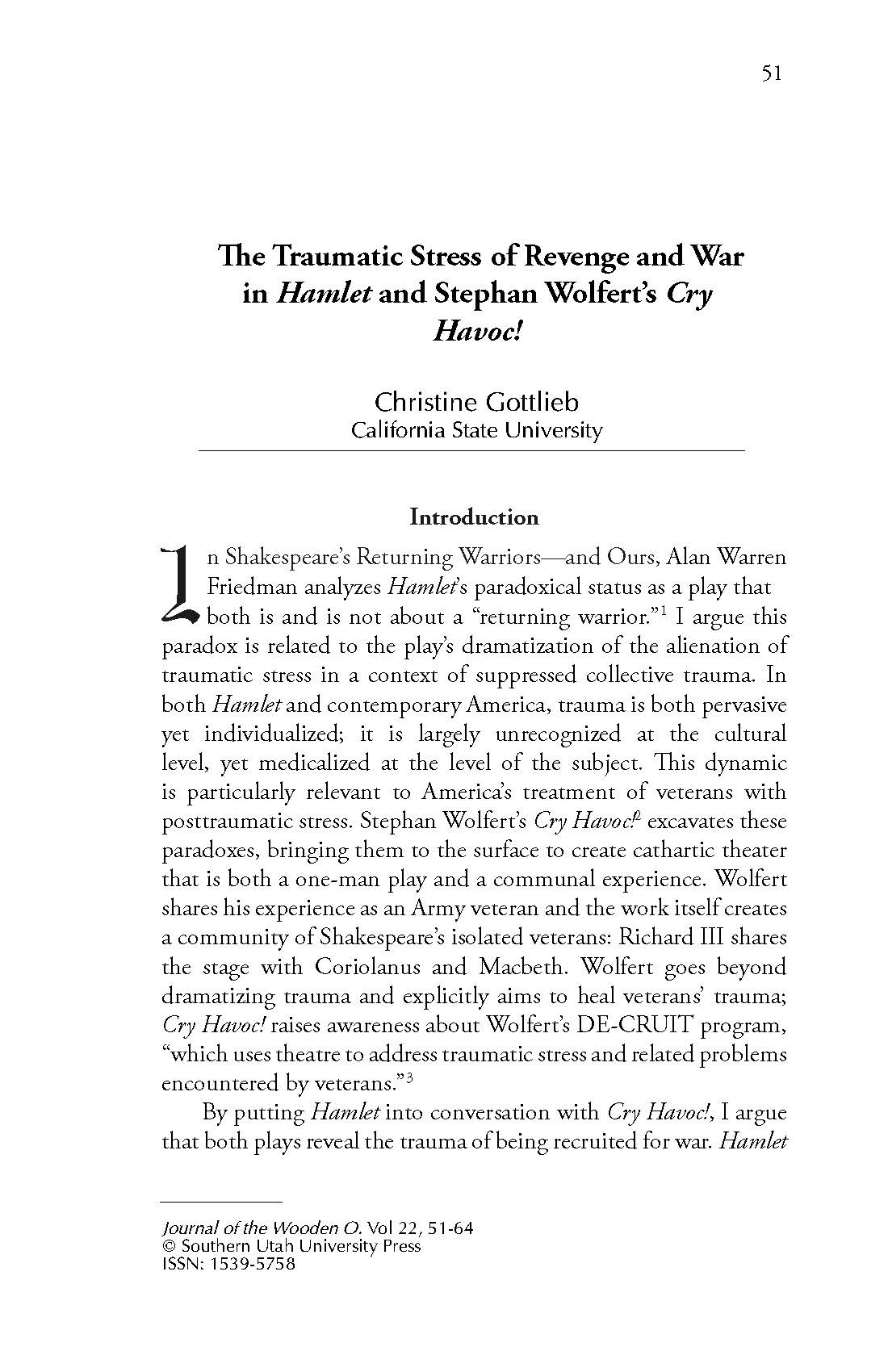The Traumatic Stress of Revenge and War in Hamlet and Stephan Wolfert's Cry Havoc!
Main Article Content
Abstract
In Shakespeare’s Returning Warriors—and Ours, Alan Warren Friedman analyzes Hamlet’s paradoxical status as a play that both is and is not about a “returning warrior.”1 I argue this paradox is related to the play’s dramatization of the alienation of traumatic stress in a context of suppressed collective trauma. In both Hamlet and contemporary America, trauma is both pervasive yet individualized; it is largely unrecognized at the cultural level, yet medicalized at the level of the subject. This dynamic is particularly relevant to America’s treatment of veterans with posttraumatic stress. Stephan Wolfert’s Cry Havoc!2 excavates these paradoxes, bringing them to the surface to create cathartic theater that is both a one-man play and a communal experience. Wolfert shares his experience as an Army veteran and the work itself creates a community of Shakespeare’s isolated veterans: Richard III shares the stage with Coriolanus and Macbeth. Wolfert goes beyond dramatizing trauma and explicitly aims to heal veterans’ trauma; Cry Havoc! raises awareness about Wolfert’s DE-CRUIT program, “which uses theatre to address traumatic stress and related problems encountered by veterans.”3
